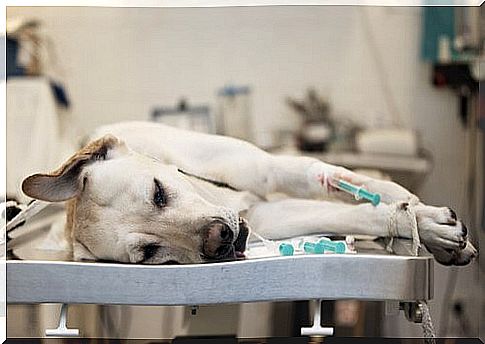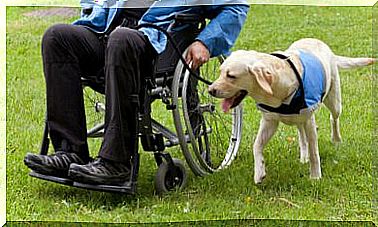Blood Donor Dogs

Just as in the case of people, sometimes animals also need to be subjected to blood transfusions for example in the context of surgery, for the positive solution of trauma, anemia and poisoning or because they are victims of an accident. And unfortunately, as happens to humans, donor availability is often scarce.
For this reason , databases, both public and private, for blood donor dogs have been set up in various countries . In many veterinary clinics, information campaigns are carried out to promote blood donation and to encourage owners to register the dog in the donor register.
Now you know: if your dog can help save the lives of his fellow humans, don’t think twice and make him a blood donor.
What requirements must a donor dog have?

For your dog to be a donor, it must have these physical characteristics:
- Weigh more than 20 pounds
- Be between 2 and 8 years old
- Be in good health and have normal blood clotting values
- Not having blood-borne infectious diseases (heartworm, Lyme disease, leishmaniasis, ehrlichiosis or brucellosis)
- Be up to date with all vaccinations
The procedure for taking blood is similar to that of people, it takes about half an hour and can be repeated every three months.
The dog will be made to lie on the table, in lateral decubitus, then the hair will be shaved in a limited area of the neck, which will then be carefully cleaned with a detergent solution, and lastly, the needle is inserted into the jugular vein, allowing to extract from 350 to 450 ml of blood.
Sometimes it can happen that after the donation dogs feel a little exhausted, but be aware that this is not the norm, in general, in fact, dogs recover more quickly than humans.
You should know that even just one donation can save two lives: in fact, red blood cells and plasma can be obtained from each donation .
Transfusions can only be done between dogs with the same blood group or when the groups are compatible.
Canine blood groups are classified according to the different antigens present on the surface of the red blood cells. Dogs have 8 antigens (called DEA from the English dog erythrocyte antigenes ), each group is in turn divided into further subgroups. The most important is the DEA 1 subgroup namely DEA 1.1 which comprises about 60% of the canine population. Roughly speaking, DEA 1.1 negative dogs are universal donors, while DEA 1.1 positive dogs are universal recipients.
It seems that greyhounds can be universal donors, compatible with transfusions with all other dogs.
Labradors are also considered excellent donors: thanks to their docile and meek character, they can be subjected to blood samples without experiencing stress and therefore can be done without anesthesia.
It is not recommended to use Akita Inu, as they have a high concentration of intra-red blood cell potassium.
The advantages of being a donor dog

Donating blood is a gesture of solidarity and altruism, however, to foment this practice, in some countries some benefits are offered to donor dogs, such as :
- Free veterinary visit
- Blood exam completed
- Annual vaccinations
- Priority in case of need for a transfusion
- A box of food as a reward
You must know that donating blood does not involve any risk: no diseases are transmitted and moreover it is painless. There is no need to worry about the collection, the donated blood is regenerated by the body in a few hours.
However, if you still have doubts, you can always speak to your trusted veterinarian. But remember: if your dog meets all the necessary requirements to be a donor, don’t dismiss this possibility a priori.
The need for blood transfusions is sudden and unexpected, for this reason animal blood banks need to have blood reserves to solve urgent cases. It is important to have sufficient supplies to be able to intervene promptly and to proceed with transfusions quickly and safely, guaranteeing each patient the most appropriate treatment.
Also, since canine blood lasts around 30 – 35 days, it needs a continuous replenishment. And even if the dogs in the canine residences are permanent donors, it is important for all owners to become aware and evaluate the possibility of making their pet a blood donor.
There is no greater reason for pride than saving the life of another living being in danger.








